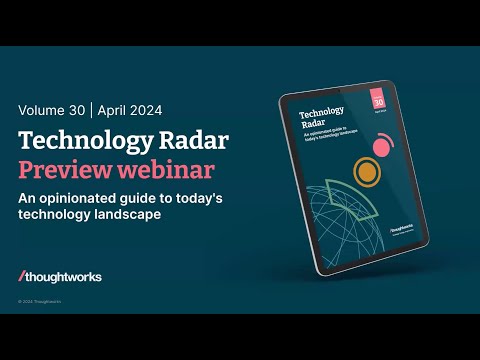CILT Conversations: Michael Feldstein on the future of digital residential education

well as we think about what the digital residential university could look like going forward it's important to keep in mind how we got to where we are at the moment the first phase of online education which happened around the year 2000 more give or take a few years depending on where you are in the world and what kind of institution you're at was very focused on access oriented education at the time using the technologies that were available often for people who simply could not for one reason or another come to campus so it was intended to be a better than nothing education preferably a reasonable quality education um but not necessarily an equivalent education hopefully they aspired for equal but not the same so asynchronous use of discussion boards a lot of individual um initiative required and that all made sense at the time it was appropriate for the people who needed it it fit with the technologies that were available at the time this is pre-cloud it was before bandwidth was starting to open up and again i recognize that bandwidth is still an issue even here in parts of the united states and across the world uh but um it left a kind of what i'll call an uncanny valley or no man's land between fully online and fully residential there was this blended learning and nobody knew exactly what it means i would argue that even today we don't have a clear understanding of what it means and who it's for and that's for two reasons one was that the technology wasn't up to um what we needed it to be in order to uh really blend the affordances of the face-to-face campus the the the residential campus with the digital it was just a completely dis disjunctive experience the other reason is that these two kinds of educations were really aimed at two different kinds of students there were the students who were looking for residential experience and then there were the students who simply couldn't come maybe because they were time because they were taking care of a family and and so it wasn't simply a question of cost there were all sorts of complexities in their lives that made it the aspects of a residential um experience undesirable for them in 2020 and going forward we have entirely different experiences and this is not to say that that first wave of access oriented asynchronous education is going away but as we've discovered in covid um there are um they're going to be all kinds of people who either temporarily or permanently are able to invest the time and energy into a um an immersive experience that we associate with face-to-face residential but for whatever reason whether it is a pandemic or some or distance or something else they simply can't get to campus so going forward the broad answer to your question is that we're going to completely rethink what it means to have a residential experience we need to deconstruct both the positive aspects of what a residential experience has meant and the sub-optimal uh parts of the experience that we're able to gloss over because if you put a group of smart humans in the same physical space and throw a bunch of ridiculous problems at them like an absurd registration process or other sorts of bureaucratic hurdles very often they will help each other figure out a way to get past those problems so in the future i imagine a smooth continuum of experiences in which we've re we've deconstructed the residential experience we've figured out ways in which the magic of those experiences whether it's in the classroom or it's in informal learning spaces how that works in a way that we can simulate or reproduce with digital affordances giving students much more option than flexibility to be on campus when they can and off campus when they need to be and at the same time have re-thought the experience going to college and restructured it around the student using digital affordances that's a high level expression it doesn't give you details but hopefully it conveys a sense of the aspiration so a lot of the work around digital transformation is currently framed as deeply unsexy and uninteresting and i would argue that a lot of what we consider to be unsexy and uninteresting or just painful and on not worthwhile has to do with how we imagine ourselves in relation to it and what i mean by that is um we have created an academic personal professional identity we have built a culture that trains educators and academics to think about the value of their work in certain ways and so we don't hear a lot of complaining about the deeply unsexy work of publishing the journals and and setting up experiments that are involved with um doing research or or applying for grants well there's the usual grumbling but nobody thought this isn't worthwhile my company my latest endeavor the empirical educator project is really about shifting the professional identity right if it's not called the the educational data project or the whiz-bang artificial intelligence project or or even the digital the empirical education project it's the empirical educator project because educators are at the center of it and if we can convince educators and by convince i mean motivate compensate and otherwise um reward and encourage uh faculty to see continuous improvement of their teaching craft based on evidence driven practices as a fundamental part of their professional identity and if we encourage them to see their responsibility to the student their student is stretching outside the bounds of their classroom but to the entire learner journey then i think attitudes towards the nitty-gritty will change right suddenly dealing with relevant technology setups or thinking through how to use those technologies for your classroom or thinking through how to look at the evidence of what it is that you're doing in a particular discipline in order to have better outcomes for students that won't be extra nonsense and burden it'll be a part of how you prove your worth as an academic yes my ambition is no less than to rewire the dna of academic culture if your goal is to digitally enable education why would you do that well to increase access and increase effectiveness of your education you can't do that unless the classroom educators are not only um bought in but feel a sense of ownership of that because the best and worst thing about teaching is that the very last thing you do before you start teaching in your classroom is you close the door once you're in there nobody but you can control what is going on in there as an educator so it is absolutely critical if we want to bring about changes digitally enabling education in ways that improve students lives it is absolutely essential for educators to see that as part of their professional identity and to feel a sense of personal pride in their role in that mission yeah sure so so the the question of how you get from the beautiful mess that is an academic institution today to something that is more apple-like in its end-to-end seamless focus um has everything to do with culture you are never going to be able to get anything remotely like the top-down uh management that can impose the kind of unity of vision that apple achieves instead what you need to do is create a culture using the mechanisms by which academic culture are created and there are levers you can pull like tenure and promotion criteria like um uh various funding mechanisms and so on and um there's actually a good several good bodies of work that academics can draw on and be rewarded for engaging with if we just take the time to think about them and i'm thinking about two streams in particular first there is a significant body of academic research around design thinking related to the academic the active learning in a physical classroom right we have a good body of literature on what we need in a physical space in order to encourage active learning we have that related to a much larger body of what sorts of pedagogical activities are required to promote active learning and of course we have the body of research related to how active learning helps students learn more effectively right so we could take all of that and ask ourselves what would it what would we need to do in order to create a a presence agnostic active learning environment where i could be my classmate could be in the physical classroom with me or connecting at a distance via modern web conferencing tools and it it wouldn't matter would still be active learning the activities that we have identified are still present and and there will be many many experiments my project the empirical educator project is premised on the idea that there are many good ideas already out there in the world being tried showing efficacy and the problem is that ironically academics are terrible at sharing knowledge with each other if it's not in their disciplinary lane if you're an anthropologist you don't spend a lot of time talking to sociologists or even maybe other anthropologists about how you teach if you are from a certain kind of access oriented institution in the united states it might be a two-year uh access oriented institution versus a four-year access oriented institution you won't necessarily speak to your counterparts in the other institutions about what you're doing sharing these practices in ways that transfer effectively are hard right likewise on on the other side where there's a stream of research about what it is that we're not doing well at universities about how to improve student retention by lowering the barriers the bureaucratic hurdles that may seem trivial to people who are privileged i i grew up i had a great education from parents who were um who were very well educated and college educated themselves so when it came to all of the many bureaucratic hurdles for example of applying to college and getting myself through the bureaucratic steps to get into college you know getting the immunizations getting registered getting all the right paperwork in i i doubt i did much of that myself probably my parents did most of it and if i had to figure it out i would have been well prepared for it right so there's a whole stream of research about what universities are doing poorly and they and the kinds of things that they could improve in that aspect so the first stream i talked about was academic focused not entirely because we could be talking about informal learning proving informal learning spaces too right it's been a lot of research on how to improve physical library spaces as informal learning spaces now that we have many fewer books and the students are more often accessing them in in digital form right so so there's the one stream about deconstructing the academic residential experience into its activity components and thinking about how we can digitally enable those and the other and that goes into what we're doing poorly that gets in students ways that's invisible to us both of these streams are carried out by individuals who are focused on their particular roles in their particular institutions if we could just do a better job of sharing those lessons learned across network boundaries we could converge on a crowd-sourced version of that apple experience that is customized for the particular needs mission and student body of each institution if i were to give advice to university leadership on what they need to focus on to get us to that future of the digitally enabled education i would say stop focusing on the course experience and the college experience and start focusing on the learner journey who is the student where are they going what do they need where what do they dream about and what can you do to support them to get there and put all of your efforts into understanding that and building a culture around uh educators and other university employees having an investment in their role in supporting the learner journey i do see the attitude changes of covet being massively constructed because everything that universities have taken for granted as being written in stone they've had to erase and rewrite in a matter of months so that that's the that's the good side in that academics have come to realize that they can change anything they need to if they need to on the not so good side covet has accelerated um and exacerbated financial pressures on many of these institutions and that is driving them to rethink what kind of business they're in and i do use that word business deliberately because this is about financial sustainability where do they make their money what are they good at and how can they recraft themselves as an institution that's going to be sustainable for the next several decades that requires some real clear-headed thought absence of magical thinking and a refocus on serving as many students in your geographical reach as you possibly can for 20 or 40 years rather than for two or four years that's the main path that institutions have before them thank you
2021-01-21 07:39


